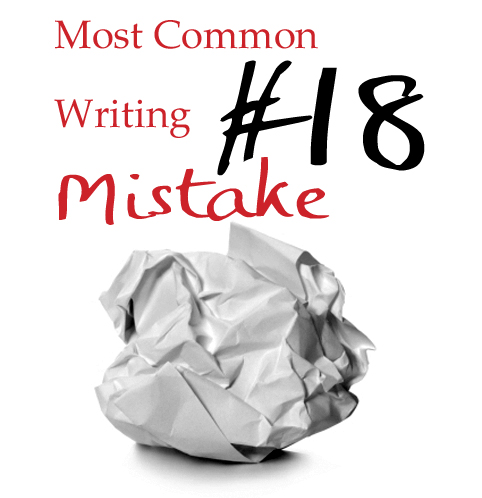The fastest way to frustrate a reader is to write everything but the good parts of a story. You’d think this would be a no-brainer. After all, as story aficionados ourselves, we’re presumably writing the story because of the good parts. The action, the romance, the comedy, the drama. We can’t wait to get it on paper, and readers can’t wait to experience it.
But sometimes, without even realizing it, we can end up skipping the best parts and leaving readers growling their frustration. This can happen for a number of reasons.
Why do authors skip the best parts?
- The good stuff the reader is interested in isn’t the good stuff we intended to write about.
- The scene is difficult or painful for us to write.
- The scene requires information beyond our expertise.
- We think we are sharing the good stuff.
What happens when authors skip the good stuff?
The result of any of these problems is going to be a scene that goes something like this:
Max braced for the showdown. It had come to this at last. He squinted against the sun and wiggled his fingers above his holstered six-gun. Across the street, Big Bad Red spat his tobacco and stalked toward him, spurs jingling. Next thing Max knew, it was all over and the townsfolk were slapping him on the back and buying him drinks. Phew, he thought. Glad that’s over.
Max might be glad, but readers won’t be. Here you’ve built up the scene, prepped them for a mighty wallop of spine-tingling, fingernail-biting, forgetting-to-breath action, and then . . . nothin’. How’s that for disappointing?
“But I left something up to the reader’s imagination!” you say. “Everybody knew what was going to happen there anyway!” you say. “The backslapping, drinks-buying scene is way more important than the gunfight!” you say.
Not to readers. The build-up to a scene is a promise to the reader. You’re foreshadowing something to come, and readers are going to want to see the payoff returned in equal measure.
How can authors avoid skipping the good scenes?
Let’s address our four reasons for skipping the best parts:
1. You never actually wanted to write about Max’s showdown. What you were really interested in was Max’s reaction to gunning down Big Bad Red.
Sometimes you can’t have one without the other. If you need a big scene to get to the next big scene, don’t skimp on either of them or the story will end up feeling uneven. And if it turns out you don’t really need the showdown, then don’t set it up so Max has to go through it to reach the scene that really matters.
2. You cringe at the thought of writing a showdown, since, as a kid, you had a bad experience High Noon.
Certain scenes may be difficult for you to write simply because of your own emotional makeup and past experiences. So you have to choose. Either write on through the discomfort (which is likely to give you a more powerful and genuine scene—and maybe even a little personal catharsis), or rewrite the story to avoid the necessity for it. But don’t skimp. Readers don’t care about your discomfort.
3. You don’t actually know anything about the Old West, gunfights, or six-guns.
Skipping the whole scene just to avoid making any factual mistakes is lazy. Lack of info can always be remedied. Put in the time to do a little research, and everything’s good.
4. You wrote the gunfight! It’s all there! Of course, you didn’t skip the best part!
Sometimes authors think they’re writing more than they are. Aside from the fact that our overactive imaginations can fill in the blanks for us while leaving them gaping for our readers, we can occasionally forget that summarizing is not showing. If the scene is important, we need to dig deep and come up with all the little details that will bring the scene to life for readers.
Ultimately, the problem of skipping the best parts comes down to either ignorance or laziness on the author’s part. Analyze your manuscript to make sure you’re not missing any opportunities or cutting any corners. Readers will thank you, and you may just discover you’ve been missing out on some good fun yourself!
Photo Credit
Photo courtesy of K.M. Weiland
Originally posted on Wordplay: Helping Writers Become Authors



Please Share Your Thoughts - Leave A Comment!